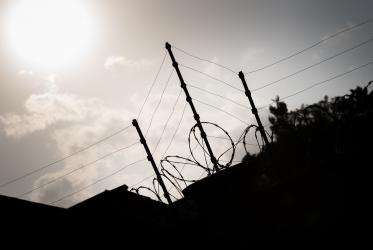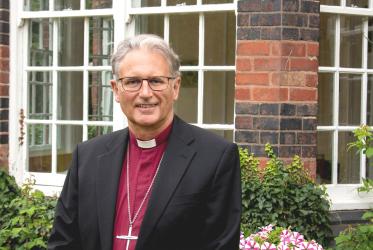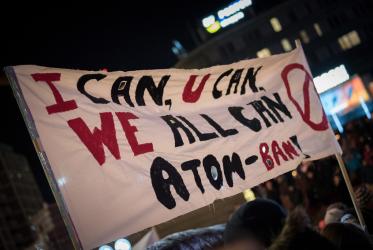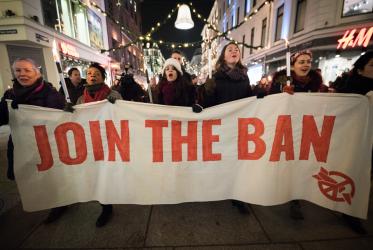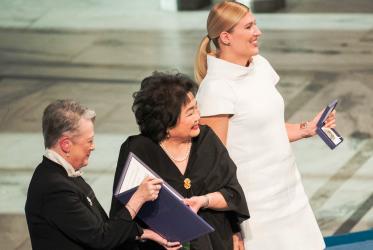Displaying 1 - 20 of 25
11 September 2023
“Coventry Cathedral continues to speak a word of hope to the world”
10 December 2020
WCC pressing ahead with disarmament work
28 August 2019
WCC supports UN petition from French Polynesia
07 November 2018
Ecumenical group demands for Germany to support nuclear prohibition
22 February 2018
Trying to do good for the world
18 December 2017
Global peacemakers join torchlight march in Oslo
10 December 2017
WCC congratulates Nobel Peace Prize laureate ICAN
06 October 2017
Religious leaders urge a ban on fully autonomous weapons
02 April 2015



